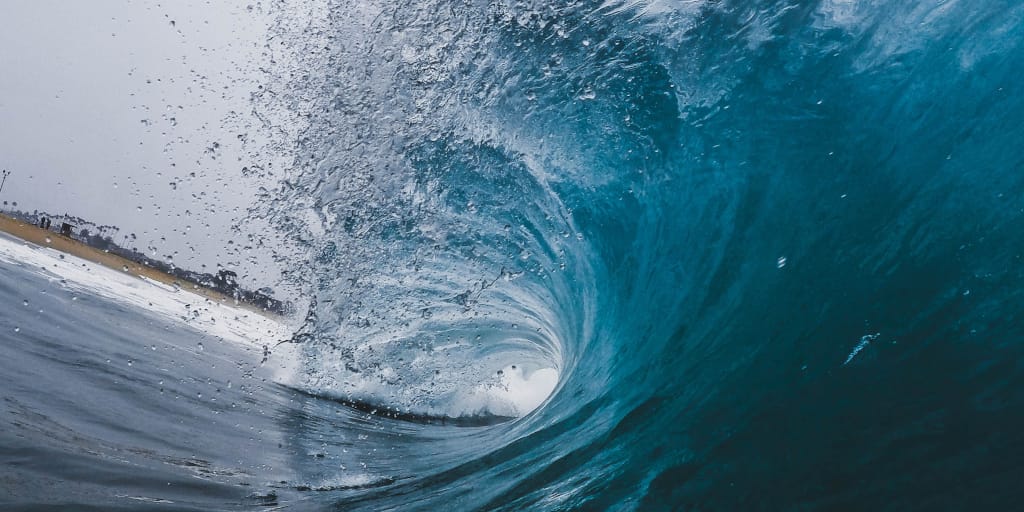After a while he wouldn’t remember if it was because of boredom or exhaustion, or any combination of the things he’d tasted and witnessed and felt, or if it was all in his mind and therefore attributable entirely to his own volition, and he stood, sorrowful, on the shore of the widening world and said: Please.
And suddenly he could see everything and do anything: he could reduce mountains to diamonds, turn trees into toothpicks, convert weather into energy, transform electricity into entertainment (and vice versa), and seemingly whatever he decided could or should be, according to every whim, desire, or fear he’d ever experienced. He was, in short, a god, and the world around him began to assume the contours of all the things he envisioned.
He was awed and humbled, and often frightened by this power—and the awareness that a greater power had granted it to him. For a very long time he worked with alacrity and woke early, inspired by but also beholden to whatever it was that compelled him and the myriad things he seemed obliged to achieve. He never ceased being astonished by these awesome abilities and the forces facilitating them; that silent presence that had once heard his prayers before he knew how to form words.
And then one day—disinterested, or on account of his digestion—he decided to sleep in. Another time he determined he was entitled to an occasional day off altogether, with nothing to conceive or invent. At first, he experienced trepidation, dreading some inevitable reprisal or reminder, but none came and nothing changed.
Eventually, the days of diligence and lethargy blended into a confused eternity while he mostly slumbered, disclaiming things with the fervor he’d once imagined them. In his dreams he beheld the disarray of his endeavors scattered throughout the fields and floating in the oceans, a personal history of keepsakes and confessions.
One morning, during the darkness before everything begins again, he was awakened by a voice. It was unlike anything he’d ever heard and yet, the longer he listened, it became familiar, impossible as that seemed. It was a voice that caused him, all at once, to consider how much he’d seen and how long he’d been on his own, creating and destroying and mostly forcing himself to forget. Hearing this voice, he couldn’t determine if he should feel resentful or grateful for being aroused—and reminded.
The voice, at first uncertain and intimidated, steadily became more insistent, coming to him across the waves and through every blade of grass, in the air and deep within the dirt, passed amongst the dry, decaying leaves and carried swiftly by the wind, repeating a single word.
Please, it said.
Sean Murphy has appeared on NPR’s “All Things Considered” and been quoted in USA Today, The New York Times, The Huffington Post, and AdAge. A long-time columnist for PopMatters, his work has also appeared in Salon, The Village Voice, Washington City Paper, The Good Men Project, Memoir Magazine, and others. His chapbook ‘The Blackened Blues’ is forthcoming from Finishing Line Press. He has twice been nominated for the Pushcart Prize, and served as writer-in-residence of the Noepe Center at Martha’s Vineyard. He’s Founding Director of 1455. Find Sean on Twitter @bullmurph and at seanmurphy.net.
Photo by Jeremy Bishop on Unsplash.

